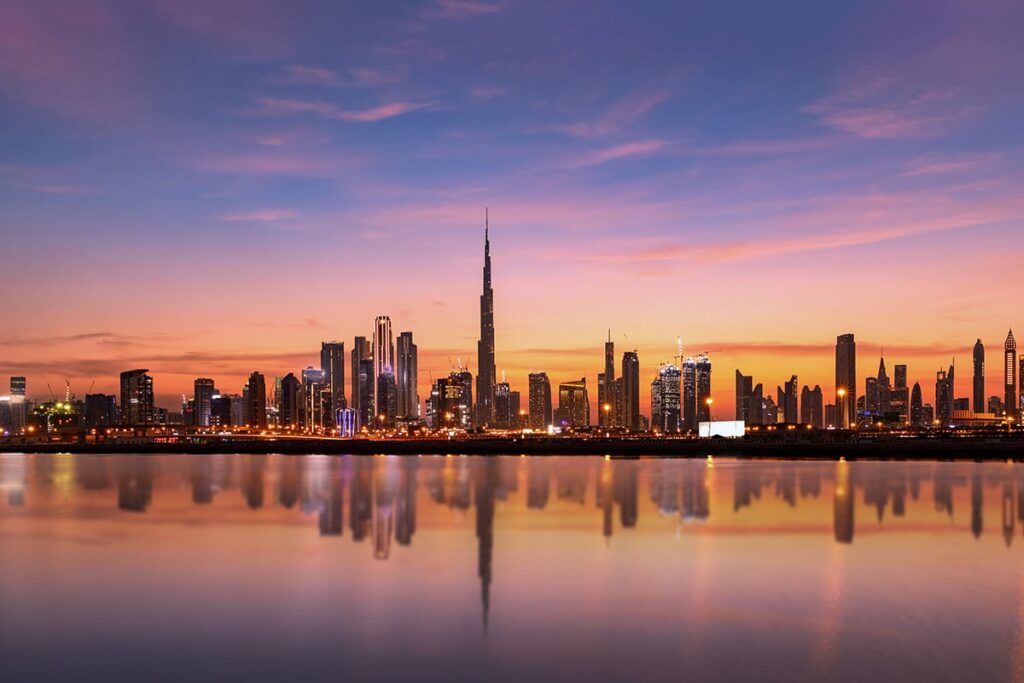The soaring rate of Dubai’s population expansion is boosting demand for residential real estate in the city in the early months of 2025, with developers in a hurry to unveil new and innovative projects, industry players said.
The surge in population growth, together with the rising migration of global high-net-worth people (HNWIs) to Dubai, has raised the requirement for high-quality residential supply in areas that fit with evolving buyer and tenant tastes, they said.
According to the Dubai Statistics Center, the emirate’s population expanded by 33,057 individuals in both January and February, reaching 3.89 million by February 2025.
“If this trajectory continues, the city could see an additional 204,500 residents by the end of the year, reinforcing its position as one of the world’s most sought-after destinations for living and investment,” Farooq Syed, CEO of Springfield Properties, a leading Dubai-based real estate firm.
“This will add further impetus to the city’s already rising demand for housing assets,” he said.
Senior executives at other real estate consultancies stated that ongoing population increase will inevitably translate into continued demand for housing, resulting in an active and competitive real estate market.
They claimed the city’s capacity to recruit new residents on such a large scale demonstrates the strength of its economy and role as a global hub.
According to industry experts, rising population expansion fuels the demand for additional residential supply.
Population drives Dubai real estate
As per industry experts, Dubai’s residential sector continues to benefit from the city’s growing population because it serves as another demand driver while also maintaining the city’s standing as an internationally competitive real estate market.
This, together with the city’s ongoing push to stimulate relocation and investment, will assist sustain market development this year despite downturn fears expressed by certain market indicators, they said.
Syed stated that based on Dubai’s typical household size of four persons per unit, the population growth in the first two months of this year amounts to a demand for around 51,126 extra dwellings in 2025.
He also stated that the city’s residential market is well-positioned to meet this demand, as current and forthcoming projects continue to appeal to a varied range of purchasers and investors looking for long-term value.
“The link between population growth and real estate demand in Dubai has been well established, and this momentum is expected to continue. With sustained interest from end-users and investors, the market remains dynamic, offering a broad spectrum of opportunities across different price points and asset classes,” the Springfield Properties’ chief executive said.
HNWIs drive demand
The growth in population, combined with the growing number of upwardly mobile professionals and the reported rising trend of wealthy migration from countries such as Germany and the United Kingdom to Dubai in recent months, is expected to boost demand in the emirate’s luxury real estate sector this year.
According to industry experts, the migration of HNWIs to Dubai is part of a bigger trend of global wealth accumulation in tax-efficient, high-growth locations.
The rise in billionaires and billionaires who have chosen to install in Dubai are also a clear indicator of the city’s trust and the city’s ability to maintain high quality trade, they said.
According to a senior executive at a city-based proptech that caters to wealthy property investors from all over the world, the latest market indicators indicate that this trend will continue, especially as the city cements its position as a low-tax, high-yield investment hub with increasing global connectivity.
“The continued strength of rental yields in prime locations further enhances Dubai’s appeal, attracting institutional investors as well as private buyers seeking portfolio diversification,” the executive said.
Industry analysts said despite ongoing property price increases, Dubai remains reasonably priced when compared to other global luxury marketplaces.
While homes in Hong Kong, Monaco, and London fetch some of the highest global valuations, they say Dubai offers a more accessible alternative with comparable lifestyle choices, and this pricing disparity continues to draw discriminating investors who see possibility for gain.
